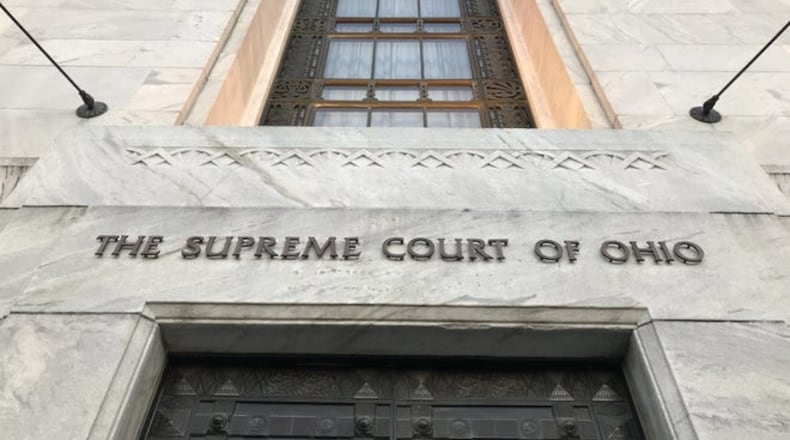- Republican Justice Joe Deters had 55.2% of the vote and Democratic Justice Melody Stewart had 44.8% of the vote. Deters ran for a different seat than the one he was appointed to by Ohio Gov. Mike DeWine in 2022.
- Republican Hamilton County Court of Common Pleas Judge Megan Shanahan had 55.7% and Democratic Justice Michael Donnelly had 44.3%.
- Republican Franklin County Court of Common Pleas Judge Dan Hawkins had 55.07% and Democratic Ohio Eighth District Court of Appeals Judge Lisa Forbes had 44.93%. They are competing for an open seat to fill Deters’ unexpired term ending Dec. 31, 2026.
One candidate and supporters of the three Republicans began issuing victory statements Tuesday night.
“I’m honored and grateful to the millions of Ohioans who have put their trust in me to be their Ohio Supreme Court Justice,” Shanahan told the crowd at the Ohio Republican Party’s election night event. “I’ll be true to what I campaigned on and will be a Supreme Court Justice who knows that my job is to interpret the law, not to make it. I’ll go to work each day and focus on protecting Ohio’s citizens, communities, and constitution.”
Ohio Right to Life congratulated the three Republican candidates.
“These three conservative pro-life judges earned Ohio’s pro-life vote. Now, more than ever, Ohio needs principled and conservative judges on the Supreme Court,” the group said in a news release. “As it now stands, six out of the seven judges on Ohio’s Supreme Court are endorsed by Ohio Right to Life. We are thrilled to know that the value of life is in the hearts of these individuals and that they will stand for life.”
The winners take office in January. The Ohio Supreme Court is the state’s top appellate court. Justices serve six-year terms and are paid $187,805 annually, an amount that gets adjusted each year.
The court currently has four Republicans and three Democrats and each political party was hoping to make gains on the court. The election results will shift the court to six Republicans and one Democrat, Justice Jennifer Brunner.
This is the first presidential election in Ohio since the state legislature required political affiliation to be listed on the ballot in the state Supreme Court race, which was previously considered non-partisan. But even prior to that change party affiliation was listed on primary ballots when parties nominated their candidates for the race.
This year’s winners will sit on a court likely to make key decisions on abortion and on voting rights.
Ohio voters in 2023 approved a reproductive rights amendment to the Ohio Constitution. The court is expected to be involved in interpreting parts of that amendment.
More about the candidates
Stewart is from the Cleveland area and is the the first African American woman elected to Ohio’s top court. Prior to joining the Supreme Court, she served on the Ohio Eighth District Court of Appeals, winning elections in 2006, 2010 and 2016.
Deters served more than two decades as the Hamilton County prosecutor and was Ohio Treasurer from 1998 to 2004. In late 2022, he was tapped by Ohio Gov. Mike DeWine to fill a vacancy on the Ohio Supreme Court, which he joined in early 2023.
Donnelly was first elected to the Ohio Supreme Court in 2018. A native of Cleveland, Donnelly spent 14 years as a trial judge in the Cuyahoga County Court of Common Pleas. He previously was the assistant prosecutor for Cuyahoga County for five years.
Shanahan has served as a judge for the Hamilton County Court of Common Pleas since 2015, where she was originally appointed by then-Gov. John Kasich before winning elections to the seat in 2016 and 2022. She previously served as Hamilton County Municipal Court judge and spent more than a decade working as an assistant prosecutor, first in Butler County and then in Hamilton County under Deters.
Hawkins was elected Franklin County Common Pleas Court judge in 2018. He previously served as a judge at the Franklin County Municipal Court and was an assistant prosecutor in Franklin County for over a decade, according to his campaign website.
Forbes is a Cleveland native and has been a judge on the Ohio Eighth District Court of Appeals since 2020. She previously worked for 27 years as an attorney.
Follow @LynnHulseyDDN on Facebook, Instagram, TikTok and X.


